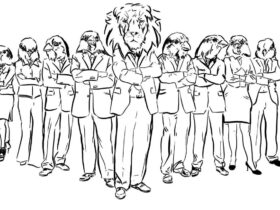Performance reviews are an important tool for managers to evaluate employee performance, provide feedback, and set goals. However, poorly conducted performance reviews can be counterproductive, leading to decreased motivation and productivity. Here are some steps to conduct effective performance reviews:

- Set clear expectations: Before conducting a performance review, make sure that the employee is clear on the expectations and goals for their role. This includes understanding their job responsibilities, performance metrics, and any specific goals or projects that they are working on. A clear understanding of expectations will make the review more objective and productive.
- Gather feedback: Feedback should be collected from multiple sources, including the employee, other managers, and customers or clients. This will provide a well-rounded view of the employee’s performance and help identify areas for improvement. It’s important to collect both positive and negative feedback.
- Prepare for the review: Before the review, the manager should review the employee’s performance metrics, previous goals, and any other relevant information. The manager should also prepare specific examples of the employee’s performance, both good and bad, to illustrate their feedback.
- Conduct the review: During the review, the manager should start with positive feedback to build trust and motivation. They should then provide specific examples of areas where the employee can improve, and work with the employee to develop a plan for improvement. The manager should be objective and avoid personal attacks or criticism.
- Follow up: After the review, it’s important to follow up on any action items or goals that were set. This will show the employee that their performance is being taken seriously and that the manager is committed to helping them improve. The manager should also continue to provide regular feedback and coaching to help the employee achieve their goals.
By following these steps, managers can conduct effective performance reviews that motivate employees, identify areas for improvement, and set clear goals for the future. Effective performance reviews are an important part of building a high-performing team and creating a culture of continuous improvement.









Leave a Reply